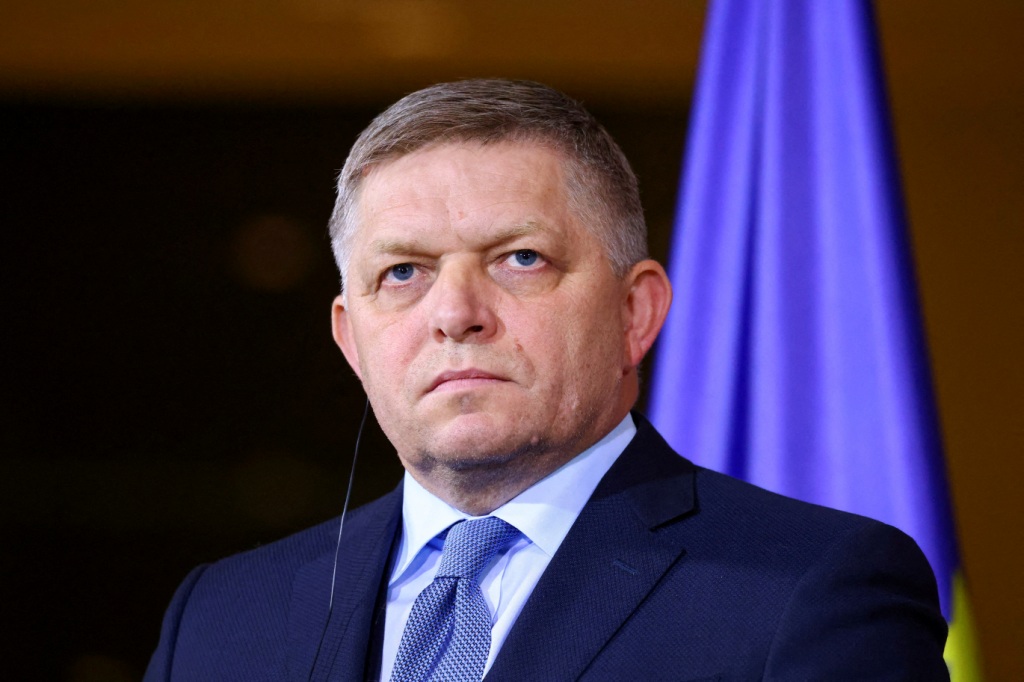The attempt on the life of Slovakia’s Prime Minister Robert Fico is a despicable act of violence. It is also a glaring testimony of what the politics of polarisation can lead to. Those who use communal divide to capture political power, plunder the resources of a country and oppose the fight against corruption need to take a lesson from this horrific incident. The words of the Slovakian President Zuzana Caputova, while condemning the heinous crime, succinctly sum up the danger posed by the brand of intolerant politics that is now sweeping across Europe and spreading to other continents. She stated that a physical attack on the Prime Minister is first of all an attack on a human being, but it is also an attack on democracy. Violence of any kind is unacceptable. “The hateful rhetoric we see in society leads to hateful actions. Please, let us stop it,” she said in a fervent appeal to preachers of hate politics.
The inescapable truth is that Fico represents an immensely divisive politics. He has helped polarise his country. In fact, he has long been a divisive figure in Slovakia and beyond. His return to power last year on a pro-Russia, anti-America platform caused alarm among fellow European Union and NATO members triggering fears that he would abandon his country’s pro-Western course, particularly on Ukraine. At the beginning of Russia’s full-scale invasion in February 2022, Slovakia was one of Ukraine’s staunchest supporters as the government of the day provided all possible help to Ukraine. But Fico stopped arms deliveries to Ukraine when he returned to power, his fourth time serving as Prime Minister.
Displaying known traits of autocrats, Fico’s government made efforts to ostensibly overhaul public broadcasting. This, according to his critics, was a move that would give the government full control of public television and radio. That apart, he decided to shield the corrupt by trying to amend the penal code so as to eliminate a special anti-graft prosecutor. His opponents saw in it a plan to take Slovakia down a more autocratic path. Thousands of demonstrators have repeatedly rallied in the capital and around the country to protest against his policies.
In hindsight, Fico might have smelt the danger his brand of politics was pushing the country to and said only last month on Facebook that he feared rising tensions could lead to the murder of politicians. Typically, like autocrats the world over, he blamed the media for fuelling tensions.
Before Fico returned to power last year, police investigations had begun against many of his political and business associates and dozens have been charged. Ironically, he had once campaigned on an anti-corruption platform, but later, as is usual these days, faced corruption allegations himself. On assumption of power he sought to overhaul the penal system and abolish the office of the special prosecutor that deals with organised crime, corruption and extremism.
The background and motivation of the attack on him are yet to be fully ascertained. But the case is widely seen as a disturbing manifestation of the deep ruptures in Slovak society. “What happened was an individual act, but the tense atmosphere of hatred is our collective work,” warned the outgoing President Zuzana, an opponent of Fico. She is stepping down after herself receiving death threats. This will also fuel concerns about extremism and attacks on politicians elsewhere.
The assault on Fico has come on the heels of high-profile political attacks, polarisation and the rise of Far-Right parties in Europe in particular. In Germany, where a neo-Nazi fatally shot politician Walter Lubcke in 2019, the country has now been witnessing a sharp rise in political attacks. Green party politicians have borne the brunt of this aggression, intimidation and death threats. Last November, Alejo VidalQuadras, a co-founder of Spain’s Far-Right Vox party, was shot in Madrid. The UK witnessed murders of Conservative MP David Amess and Labour MP Jo Cox only five years apart.
Research suggests that violent political language is linked to physical violence. The words of politicians can exacerbate division and sanctify extreme attitudes. It is high time politicians indulging in polarised politics stop playing such dangerous games. Political leaders in India need also take note.
